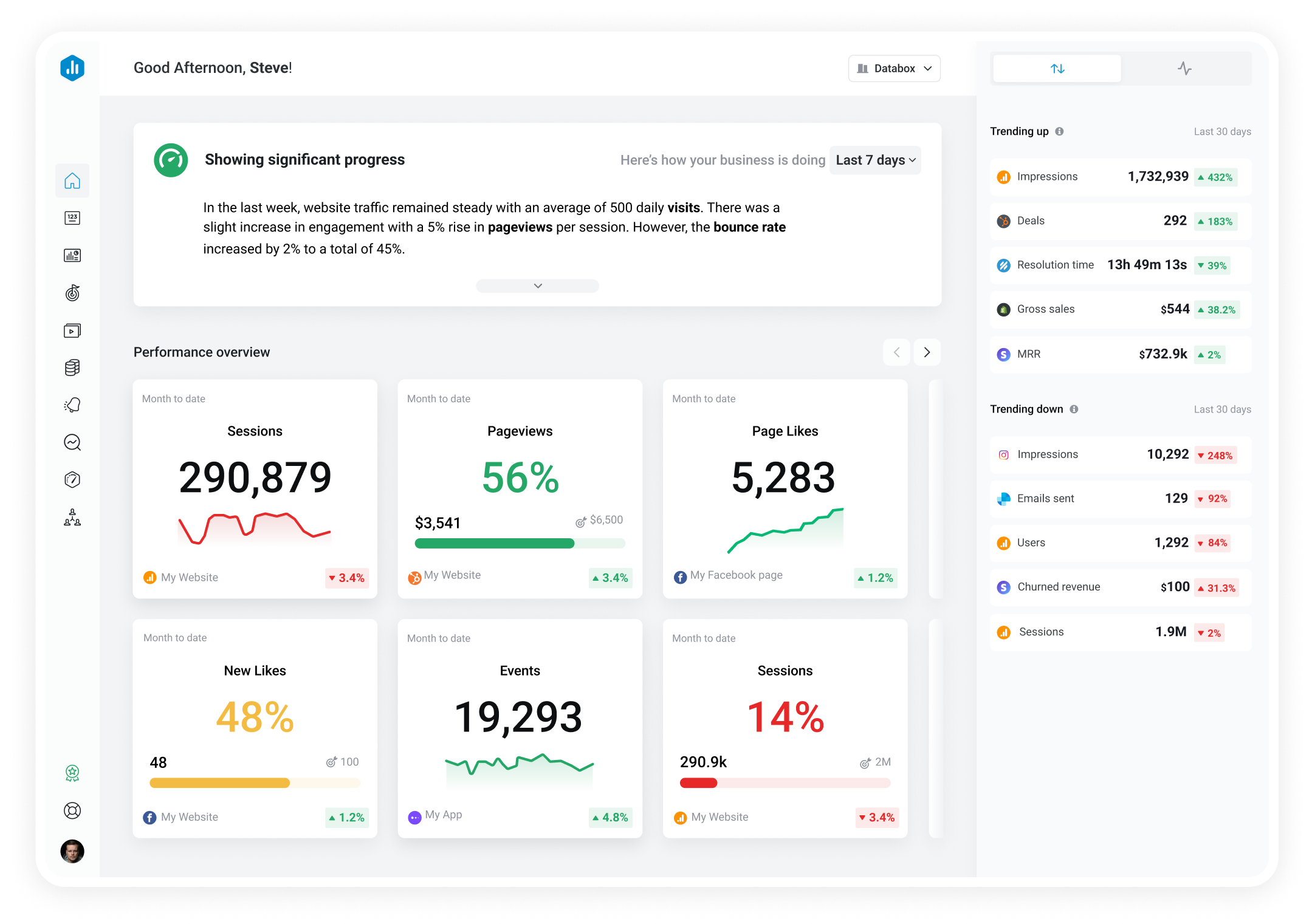Track all of your key business metrics from one screen
GET STARTED
 QuickBooks
Cost of Goods Sold (Accrual) by Subcategory
QuickBooks
Cost of Goods Sold (Accrual) by Subcategory The Cost of Goods Sold (Accrual) by Subcategory metric tracks the total cost of producing or purchasing the goods sold in each subcategory during a specific period.
With Databox you can track all your metrics from various data sources in one place.

Used to show comparisons between values.
Databox is a business analytics software that allows you to track and visualize your most important metrics from any data source in one centralized platform.
To track Cost of Goods Sold (Accrual) by Subcategory using Databox, follow these steps:
 Goals
Goals Scorecards
Scorecards Metric Digest
Metric Digest Metric Builder
Metric Builder Data Calculations
Data Calculations Performance Screen
Performance Screen